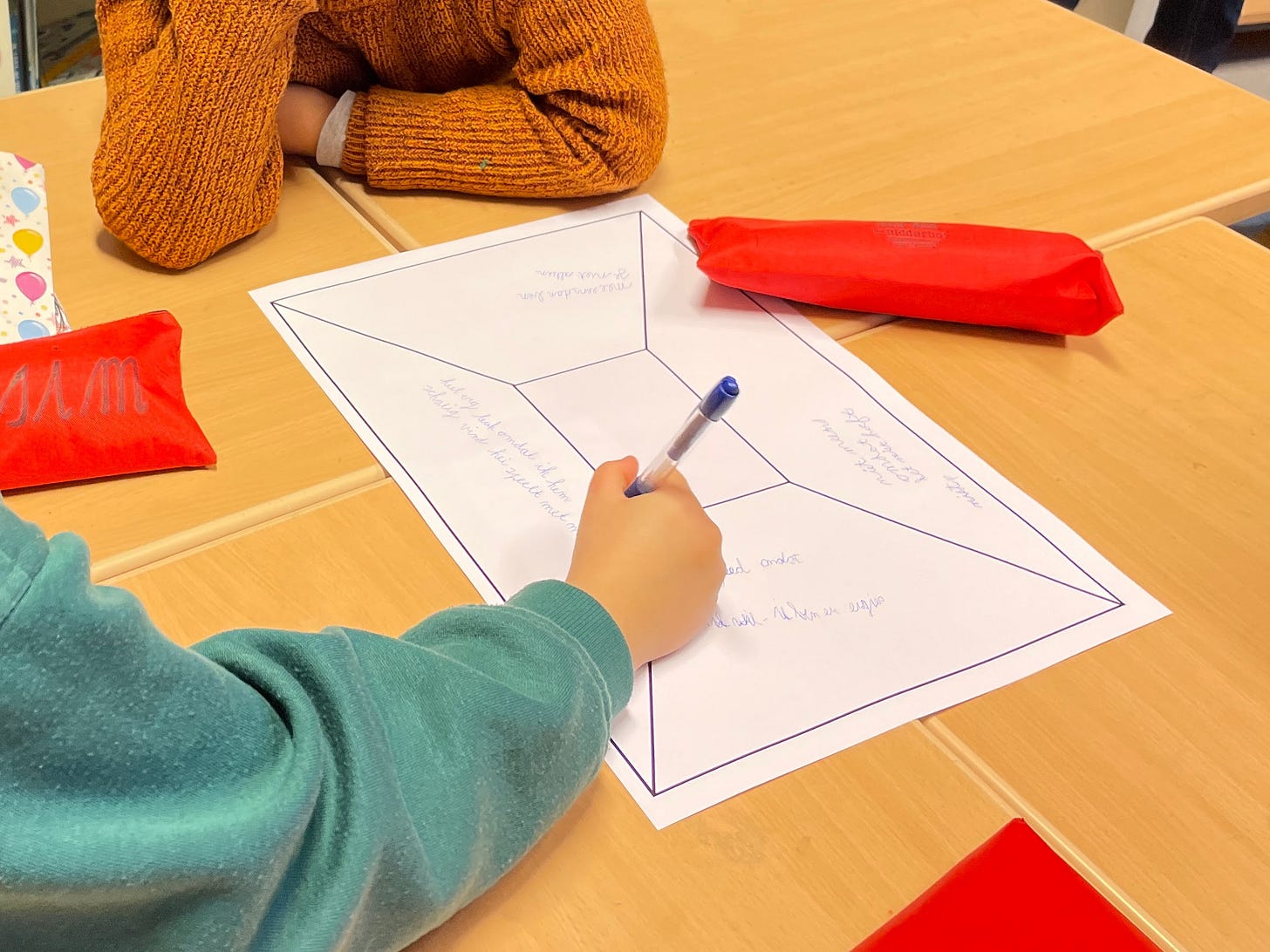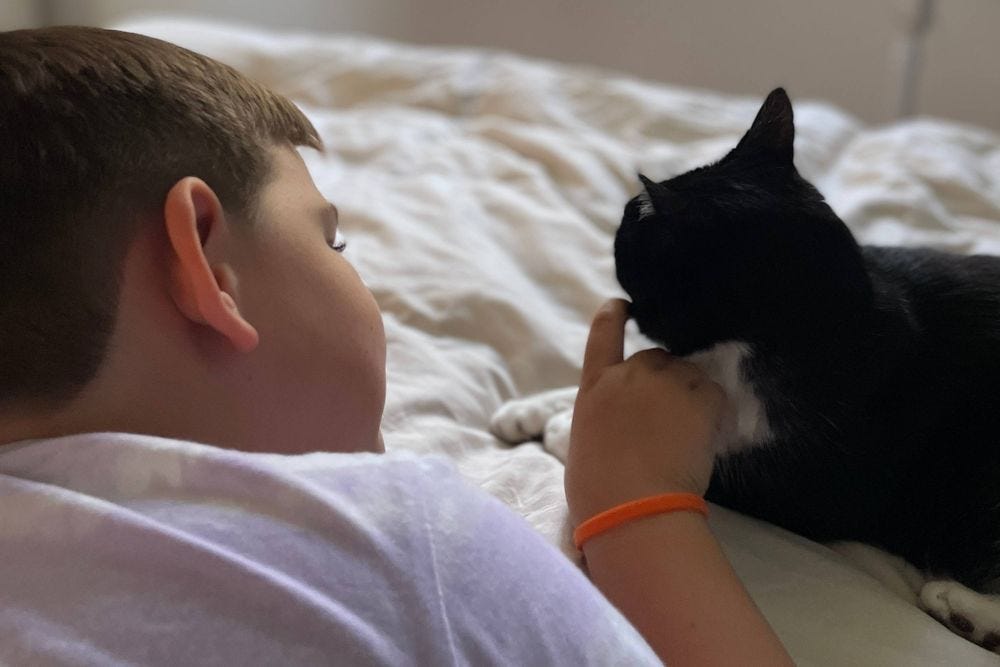Earlier this week I went to my son’s class along with many other parents to see a lesson the teachers were giving the children. This is the first time since the beginning of the school year we were invited in to see their class in action. Honestly, I wasn’t ever expecting that, I don’t ever remember my parents visiting a class in situ.
Ostensibly, the children were learning about "peace" but really it was to learn how to put together an argument, listen to their classmates, and finally to come to a compromise. In my mind, they were learning how to be Dutch. I have never experienced anything like this in either an American, English or French school. My husband said in Argentina, this lesson would have been taught as a speech about how we need to be good citizens but nothing more. Our son is indeed #growingUpDutch
The lesson started with the teachers explaining what a belief statement is. The example given by one teacher is that she likes to bike because she goes faster than walking, she’s up high on her bike so she has a nice view of her surroundings, and it's good for her health.
Once the students understood that concept - remember these kids are 7-8 years old - they had to get to work. They were given a "placemat" piece of paper with five spaces. Groups were formed - four kids in each, and they each had to write down their own belief statement in an empty space on the placemat. Then they had to read their sentences and listen to each other. Did they agree with what had been said?
After listening to each other, they had to come to a compromise that all four children could agree with and write that sentence in the middle of the paper, in the fifth empty space.
The proposal was “children without brothers and sisters must have pets at home”. Did they agree or not and why - what was their reasoning? In my son’s placemat, the children wrote down four different arguments. One kid said NO because he’s allergic. Another said YES because animals are cute and they can be played with. Another said NO they don’t have to, and my son said NO kids don’t have to, but they can if they want. He’s an only child and we have two cats.
The students finished writing down their answers. They then listened to each other without arguing or finding fault, just listening. They had to come up with a compromise solution that they could ALL agree with in the middle of the paper. No student was able to just go along with the answer and remain unsatisfied. They had to come to a real compromise. But isn’t the best compromise one where all parties leave unsatisfied? That might perhaps be another lesson for another time. This little group wrote down what my son had written - “Dat hoeft niet, maar dat mag.” “You don’t have to, but you can.”
The teachers asked if all the groups were done and asked them all to read out their compromises. Two out of the six groups had the same answer “Dat hoeft niet, maar dat mag.” Some groups said unequivocally NO while others said YES. Eventually, they all had to come to a compromise between all six groups, and the same conclusion was arrived at: “Dat hoeft niet, maar dat mag.”
This lesson has stayed with me all week. I couldn’t get over how the children were being taught. Later that afternoon, at the swimming lesson our sons are both in, I talked with a Dutch parent about this lesson. While he was impressed and intrigued by seeing the lesson, he hadn’t thought about the fact that they were learning how to be Dutch because it’s just so ingrained into his core being he didn’t see anything noteworthy about the lesson itself. It was very normal for him but he then thought about it and realized how integral the lesson was to creating the society we all live in here. We both got a deeper appreciation for the class, their teachers, and the lesson itself.
#education #compromise #civics #publicSchool #nederland #openbaarOnderwijs #polder #Dutch






Hello Cousin, I am from the British side of the family…..Greetings…!